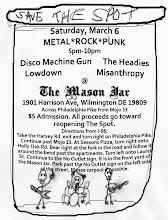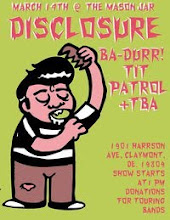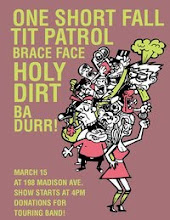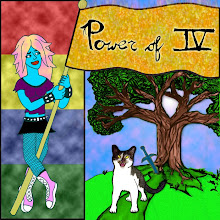Essay the second, and I'm out! See ya in September... (or later on today).
Bill Gordon puts up a pretty flimsy argument against the justification of the Hiroshima and Nagasaki atomic bombings by the U.S., but it seems to be only partly an argument. The title "Reflections on Hiroshima" says it all, as Gordon muses on aspects of the bombings without strongly comitting or convincing anyone.
He begins by exploring whether the bombings were justified. In his first argument he speaks about the "hatred" many Americans "must have felt" towards the Japanese during this time, referencing a 1945 poll in which 23% of people polled said they wished we had had time to use more A-bombs before VJ Day. While this is slightly barbaric, and reveals a technical racism in a quarter of the concensus, it pales in comparison to the war-like and racist sentiments of post 9-11 Americans, and just doesn't seem so shocking. He goes on to the "deeply prejudiced oppinions" of America's leaders, specifically President Truman. Quoting Truman's diary, the week before the big day, the Japanese people were "savages, ruthless, merciless, and fanatic." Gordon calls the American people and the government racist, and claims this made it easier for them to justify the bombings to themselves. Even if all this were true, it does not determine whether the bombings were justified or not. Gordon is not claiming the U.S. bombed Japan because we hate the Japanese, which would detract from justification, rather just that American prejudice made the bombings more palatable.
Then Gordon claims that the U.S. did not pursue adequate diplomatic ends to the war before resorting to the bombings. However, his premises don't support his conclusion. He talks about how Japan proposed a conditional surrender, where Emporor Hirohito would remain the nation's head. But the U.S. demanded an unconditional surrender. He claims that the U.S. should have been satisfied with the other demands being met, i.e. - complete disarmament, relinquishment of territory seized during the war, temporary occupation of Japan by Allied forces, and justice for war criminals, to name a few. But Japan refused, even after being warned, in writing, of "prompt and utter destruction" by the U.S. The U.S. made adequate attempts at diplomatic ends to the war, but Japan refused, knowing what would happen, or at least that something bad was going to go down. He caps off his anti-argument by stating that 90% of Americans polled supported the "unconditional surrender" policy, the people were behind it too.
Gordon then goes on to say that the motivation to drop the bomb was not military, but political. He says it was done not to win the war, but to keep Communist Russia out of post-war Japan and to give us a head start on the burgeoning cold war. Again, he mentions how popular the decision was, and how Truman had a real no-brainer. Give the people what they want and use the biggest, best weapon there is, which we spent two billion dollars on, and end the war, presumably forever. This is his best argument so far. If countless lives were sacrificed soley for the sake of the capitalist/communist pissing contest, then the use of the atomic bomb was not justified. Talking about how popular the decision was (without drawing attention to the previous "racist" argument) is not very convincing however.
Next, he talks about how he used to believe the bombings were justified, and actually gives a couple good arguments for that side, such as the A-bomb being a weapon of war like any other bomb, gun, etc... and the events shouldn't be judged any different than any other wartime killing, and the bombings ending the war actually prevented what may have been a larger number of total deaths. Then he says he doesn't think those things anymore, and gives two extremely brief but believable premises. That Japan was already on the verge of collapse, and expert leaders MacArthur and Eisenhower thought the bomb to be militarily unecasarry. This is his first sound argument against the necesity of the bombings, even if he couldn't rebuke justification. He knows it, and uses the ad hoc argument that even if Hiroshima was justified, Nagasaki was not, which clearly does nothing to prove that the bombings on Hiroshima were not justified.
At this point, Gordon perfoms a non sequitor and begins to talk about how various books and movies on the topic have effected him, discussing the medium's portrayal of the "human tragedy" caused by the bombings, physical, emotional, psychological, and the way it tore a country apart. This is merely an appeal to pity, tugging at the heartstrings in place of convincing.
Finally, Gordon proposes two alternatives to Truman's method, which was to use the A-bomb in the manner most effective from a military point of view to bring about prompt Japanese surrender while minimizing loss of American lives. Gordon's alternatives: either do not use the bomb militarily but make public the experimental results, supposedly scaring the Japanese reading about it or maybe seeing a video playback of a bomb going off into reconsidering their condition, or maintain as secret as possible and refrain from using the bombs in war, which would have been very humanitarian minded and karmically sound, but that's not the way history went, and does not effect whether dropping the atomic bomb on Hiroshima was justified or necesary.
Check out this sweet new technology they have now: movies that don't actually move.
Claudia Boulton
7 years ago








































































































No comments:
Post a Comment